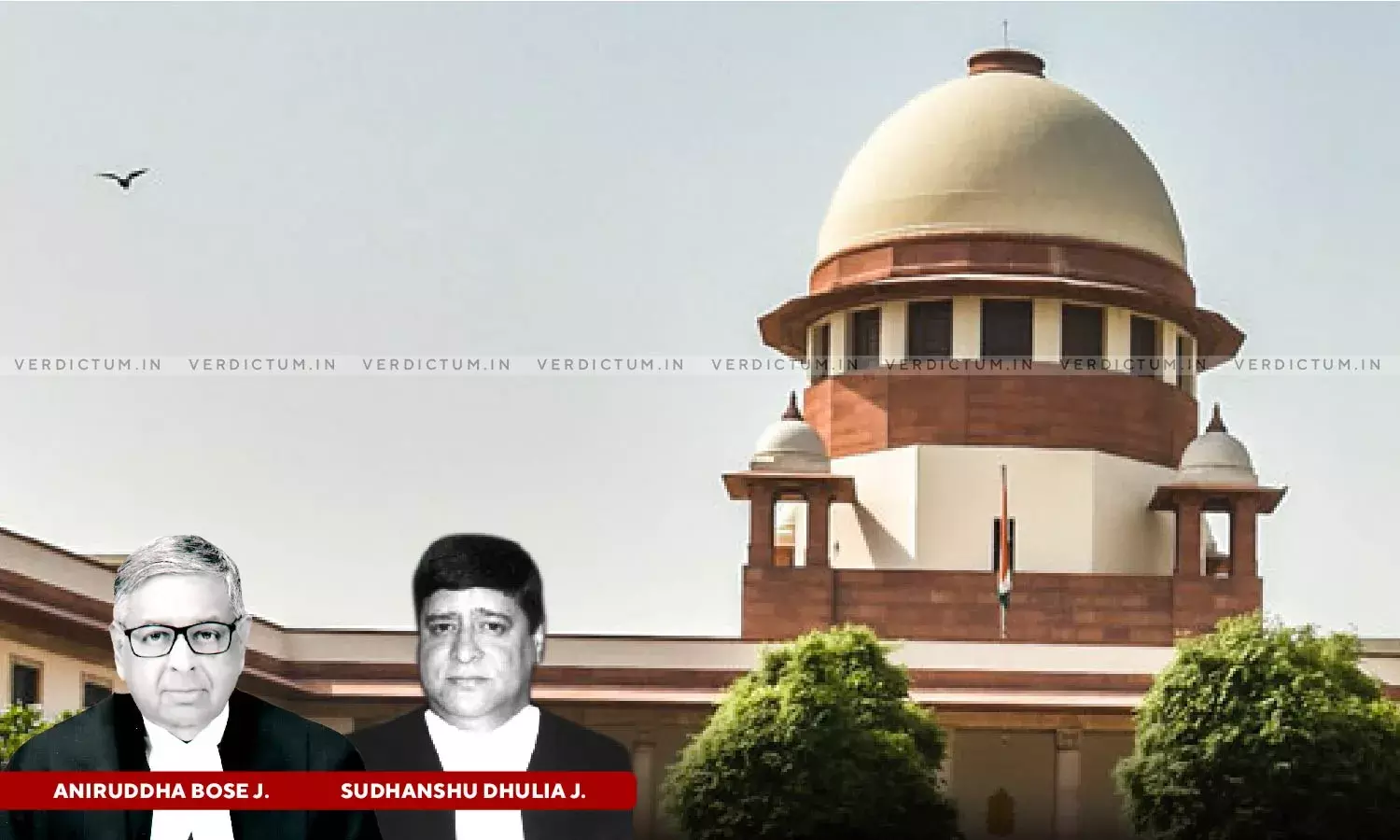Proceeding Based On That The Persons Were Substituted Won’t Determine Locus To Main Petitions Deriving Their Right From Testamentary Instrument: SC

The Supreme Court observed that proceeding on the basis that the persons were substituted would not determine their locus to maintain the petitions deriving their right from the testamentary instrument.
The Court was deciding petitions filed by two nephews of a man who died in the year 2019 and had interest in two blocks of land adjacent to each other in the Tamil Nadu State. The said nephews (petitioners) brought an action in the capacity of legatees of the said man.
The two-Judge Bench comprising Justice Aniruddha Bose and Justice Sudhanshu Dhulia held, “So far as locus of the petitioners is concerned, this Court had allowed their plea for substitution by an order passed on 31.08.2021. Now by proceeding on the basis that the petitioners were substituted would not determine finally their locus to maintain the present petitions deriving their right from the said testamentary instrument. But as we have held against the petitioners on merit, we do not need to examine these two issues.”
Advocate Varinder Kumar Sharma appeared on behalf of the petitioners while Advocate Shalini Kaul appeared on behalf of the respondents.
In this case, the dispute was related to the title of a man (deceased) in respect of one block out of the two, described as first scheduled property in his plaint which triggered off the suit giving rise to the proceeding. The other part of the dispute was over retention of his possession and tenancy right in respect of second scheduled property, as described in his plaint. The said deceased claimed title over the first scheduled property and there was some dispute on its measurement. In respect of the latter block of land, one person sued for delivery of vacant possession whereas the deceased asked for protection of his possession in his suit. The original owner of both the properties had conveyed the first scheduled property to the deceased through a deed of sale. So far as the second scheduled property is concerned, the case of the petitioners was that it was rented out to their predecessor the original owner.
An original suit was instituted by the deceased before the Principal District Munsif Judge and in this suit, he claimed benefit of Tamil Nadu City Tenants Protection Act, 1921. The deceased was served with notice to quit in terms of Section 106 of the 1882 Act. He wanted declaration of title to the first scheduled land and permanent injunction restraining the defendants from disturbing his peaceful possession over the second scheduled property. In their counter-affidavit, the petitioners (respondents herein) took a plea that deceased himself had sold the first scheduled property to his two nephews. The deceased appealed against the judgment of the Trial Court which granted declaration in favour of him in respect of first scheduled property only and dismissed his claim on the second one. However, the First Appellate Court sustained the Trial Court’s finding due to which the deceased approached the High Court but it disposed of the appeals.
The Supreme Court in view of the facts and circumstances of the case noted, “… we are of the opinion that the second scheduled property in Rahmath Beevi’s plaint showing measurement of 15 feet (east-west) and 18 feet (north-south) is the correct measurement thereof. Therefore, we do not find any reason not to accept this measurement.”
The other points of law that were required to be addressed were on the question of validity of notice under Section 106 of the 1882 Act and whether the petitioners were entitled to protection of the Tamil Nadu City Tenants Protection Act or not, as the High Court found both the points in favour of the predecessor of the respondents.
The Court in this regard said, “We do not find any reason to interfere with the said finding returned by the High Court. The High Court, in substance, retained the decision of the Trial Court in Mohideen’s Suit (O.S. No.172 of 1995) in relation to second scheduled property.”
Accordingly, the Apex Court dismissed the petitions.
Cause Title- Mohideen Abdul Khadar (Dead) Through LRs. v. Rahmath Beevi (D) Thr. Her LRs. and Ors. (Neutral Citation: 2023 INSC 969)


